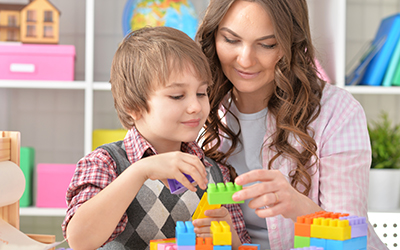Image Credit:
File ID 86014133 | © Ruslan Huzau | Dreamstime.com

Trauma can significantly impact a child's physical, emotional, and psychological well-being. Various events, including natural disasters, accidents, abuse, and violence, can cause trauma. As a parent, it's natural to feel overwhelmed and unsure of how to support your child after experiencing a traumatic event. Following are some tips to help your child cope with trauma:
It is essential to create a safe space where your child feels comfortable sharing their thoughts and feelings. Encourage your child to talk or share challenges and listen without judgment. Validate their feelings by acknowledging their emotions and reassuring them that it's okay to feel that way.
After a traumatic event, your child may feel insecure and anxious. Providing comfort and stability can help them feel safe and secure. Create routines and stick to them as much as possible. Provide a comforting environment with familiar objects such as blankets or stuffed animals.
If your child struggles to cope with trauma, seeking professional help can be beneficial. A trained therapist can help your child process their feelings and develop coping strategies. Additionally, a therapist can support parents and caregivers to better understand their child's needs and how to support them.
Encourage your child to develop healthy coping mechanisms to manage their emotions. Activities such as exercise, art, or music can be effective in reducing stress and anxiety. Teach your child relaxation techniques such as visualization or deep breathing to help them manage their emotions.
Healing from trauma is a process that takes time. It's important to be patient with your child. Avoid pressuring them to move on or "get over" what happened. Instead, offer consistent support and understanding as they navigate their feelings.
Helping your child cope with trauma requires patience, understanding, and consistent support. You can help your child heal and overcome trauma by encouraging healthy coping mechanisms. Remember that healing is a process, and being patient and understanding with your child as they navigate their journey to recovery is essential.